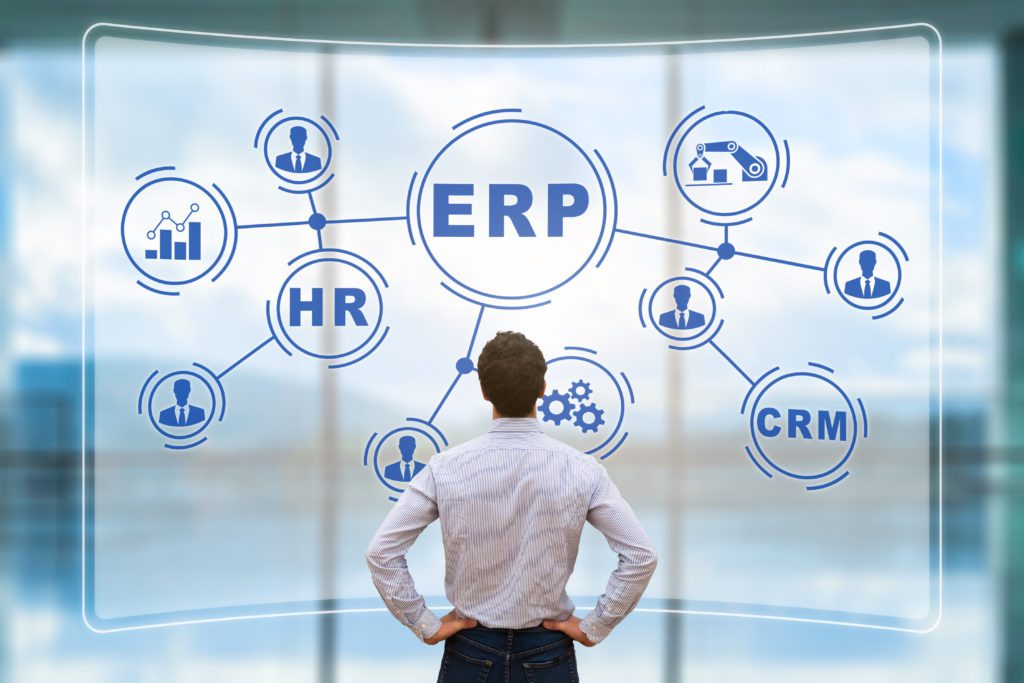
As enterprises strive for more efficient operations across the board, enterprise resource planning (ERP) software is an increasingly sought-after solution for improving processes at the business application level. ERP software unites disparate back-office applications, business processes, and workflows in a single platform. It can lead to new advantages like improved data sharing, increased data quality and accuracy, and administrative visibility.
Despite all of the benefits that can come from an ERP system, many enterprises make the mistake of selecting an ERP solution that fits poorly into their business model and goals. Learn not only the most basic features that your company should prioritize in an ERP platform but also some of the specialized features you should consider and the steps you should take to choose an ERP system for your business.
Basic features you need in an ERP solution
ERP solutions are designed to unite applications and processes across business use cases. In order to effectively drive visibility and performance for a variety of departmental workflows, ERP platforms should always include these basic features:
- Integrations with other enterprise applications, either natively or via APIs
- Automation and workflow management
- Data analytics and business intelligence (BI)
- Reporting and data visualization
- Administrative dashboards with real-time tracking
- Custom, granular user and administrative permissions
- Robust databases and data storage
- Compliance and policy management support
Related: Top Governance, Risk & Compliance (GRC) Tools
Related: How to Integrate Tax Compliance Apps with Netsuite
Core modules in an ERP solution
Although some ERP systems offer only the basic functionalities necessary for back-office process management, many ERP platforms take a broader approach, offering modules for different industries and business use cases that can be added on or rolled back as needed. If you work in a highly specialized line of business, it’s important to consider what modules you’ll need and if your preferred vendor offers them. These are some of the most common modules in ERP software:
- Finance and accounting management
- E-commerce management
- Healthcare, with patient, staff, and inventory management
- Supply chain and order management
- Resource and inventory management
- Customer relationship management (CRM) and marketing automation
- Human resources and workforce management, which can include payroll management
- Manufacturing and facilities management
Best practices for selecting an ERP
Just because an ERP platform is widely recognized or highly reviewed does not mean that it’s a good fit for your business. To choose an ERP system that is optimized for your company and its existing technologies, apply these best practices and take these steps during your ERP selection process:
1. Create an ERP research and selection team
No single IT professional or company executive should work alone when researching and selecting an ERP platform. Incorporate not only IT team players but also key stakeholders from other departments who will be using this tool. They can tell you more about the applications that they use on a daily basis, as well as their current processes, inefficiencies, and key requirements for a new platform.
2. Audit your existing enterprise applications and workflows
Before selecting an ERP solution, consider what is and isn’t working in your current business processes and applications. The best way to get a holistic image of current workflows and bottlenecks is to complete a network audit. This process will help you to identify current silos and security issues, look for legacy tools that need to be replaced, and even find tools that are no longer in use.
3. Focus on data quality improvements
When making a major systems shift, it’s a good idea to not replicate any data problems, errors, or inefficiencies in a new system. Consider investing in data cleansing and other data quality tools to improve data accuracy and relevance prior to an ERP migration. This step will save your team time and money, and it will also give you a better idea of where data currently lives and how it’s being used.
4. Prioritize ERP modules for your business use cases
Every business will need different ERP modules to effectively run their business. Consider where your company’s greatest pain points are today, especially when it comes to your business applications and how effectively they perform. Whether you’re looking to manage workflows in your supply chain or the employee lifecycle for human resources, most major vendors will have a module that simplifies your approach. It’s important to not invest in modules that won’t measurably help your team.
5. Consider the technical backgrounds and skills of your IT team
Does your team have less experienced IT professionals who will be setting up and managing the ERP platform, or are they more seasoned? The experience and knowledge of your team should be a factor when deciding if you want an ERP that takes a user-friendly, templated approach or a more open-source, customizable approach. You should also research what customer support for a given ERP platform looks like before getting started.
6. Prepare documentation and questions for a product demo
As prospective ERP customers, your team should set up a product demo with a customer experience professional. But before you actually go through the product demo process, prepare documentation and key questions to make sure the demo covers everything you need to know before purchasing.
Choosing the right ERP for your business
All key users, applications, and daily business processes will be affected by the ERP platform you select and how your team sets it up. If your team invests the appropriate time and research into finding the right ERP system, your entire company will be set up for success as they begin to select modules and deploy the tool across different departments. It’s important to pay attention to the features available in your platform, who can and will support your implementation along the way, and how this platform will grow with your needs over time.
Read next: Best ERP Systems: Compare Top Vendors